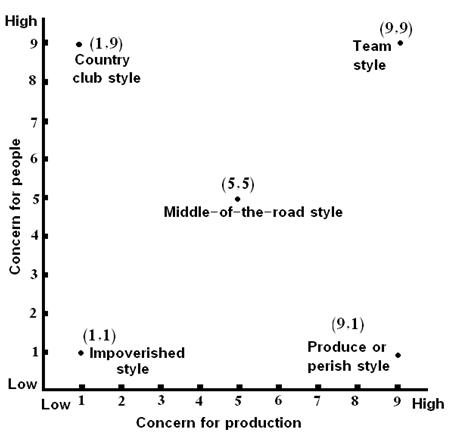12 April 2016

What are the Skills required to Lead and Manage?
Management skills are often linked to leadership skills and there is a popular discussion whether leadership and management are the same. It could be stated that a leader needs people to lead whereas a manager carries out a process; however, there are many more definitions.
A number of people make things or process things – this is production. This can be the transformation of those things from the inputs to the outputs. It does not matter if the process is at the beginning of the chain or at the end, the principles are the same. The inputs can be grouped as energy, materials, labour, capital and information. The output can be goods or services. A manager’s role is to harness all of the inputs ensuring that there is sufficient quality with quantity, sufficient but no more.
‘You manage things; you lead people’. Rear Admiral Grace Murray Hopper.
We can extend the term production to cover operations management which plays an important part in any type of organisation. The operations can be classified in a number of different ways:
- Manufacture
- Transport
- Supply
- Service
Many of you will recognise these as elements in the Supply Chain. A manager must therefore have knowledge of all aspects of the supply chain in which they are operating.
A manager’s job is complex and multidimensional and requires a range of skills – some of them are discussed in this blog. A manager’s involvement in the organisation is very widespread and voluminous therefore there is little time for quiet reflection or management development. The role of a manager could be described as a ‘firefighter’ who moves from one crisis to another whether production or finance.
There are a number of areas of finance which a manager should be confident in analysing; this does depend upon their level in the organisation. At the basic level all supervisors and above should understand the management accounts of the operational area in which they operate and be familiar with key ratios. Departmental managers should understand how to analyse the departmental management accounts with the key rations; they should also understand cash flow and the effect that this has on the wider business. There should of course be confidentiality in allowing key business financial information being accessible to a number of people. Those people who are responsible for business functions should have an intimate knowledge of finance including cash flow, balance sheets, profit & loss and financial analysis of appropriate ratios and statistical analysis.
There are many skills required to lead a team of people such as:
- Vision – the ability to look ahead and not solely concentrate on the immediate
- Energy – both physical and mental energy is required so implying therefore that a leader should be fit
- Authority – possessing the necessary ability to carry out change, whether by given power or assumed power
- Strategic direction – understanding which way the organisation, the trade sector and the outside world is influencing the local environment. There are many considerations of the influences that are affecting leaders such as: Political, Environmental, Social, Technological, Legal, Economic and Ethical – a leader must be aware of all of these pressures.
Are you a Good Manager?
It is said by some academics that there are two factors affecting managers – concern for people and a concern for production. Blake and Mouton (1985) used these two factors to form a grid, it would be a good idea to see where you are on the grid below:

Are all Managers’ Jobs the Same?
Managers rely on varied skills and perform different activities, depending upon their position in the hierarchy. However, for all managers, human skills are becoming increasingly important. Being able to communicate effectively, both orally and written, understanding how to retain talented employees and motivating workers – these are essential human skills needed in organisations today.
All managers should have a job description for their current role and this should be updated and agreed with the line manager and HR on a 3 yearly basis. This job description becomes the basis of the contract between the employee and the organisation so that regular appraisals are undertaken with the line manager, at least once a year.
It is implicit that the manager should understand their role and the key performance indicators of the role; they should also understand, though not necessarily be able to perform, the roles of their subordinates. Managers need to have an awareness of the outside environment as well as a sound knowledge of how their own organisation operates.
The aim of all managers should be to own their own development and the organisation should support this. This development being geared to improve a person’s overall career prospects rather than train him or her to perform duties necessary for the present job. This may seem radical to some managers, but the idea is to improve a manager’s performance and equip them for higher level responsibility. Management development and training should be ongoing with resources allocated even when there is a downturn in the organisation’s turnover; the benefit is raised morale with managers being prepared for the cyclic upturn.
‘Before you are a leader, success is all about growing yourself. When you become a leader, success is all about growing others’ Jack Welch.
AZTech Training offers a wide range of Management and Leadership Training Courses that will benefit all professionals in their pursuit of excellence in their careers.


